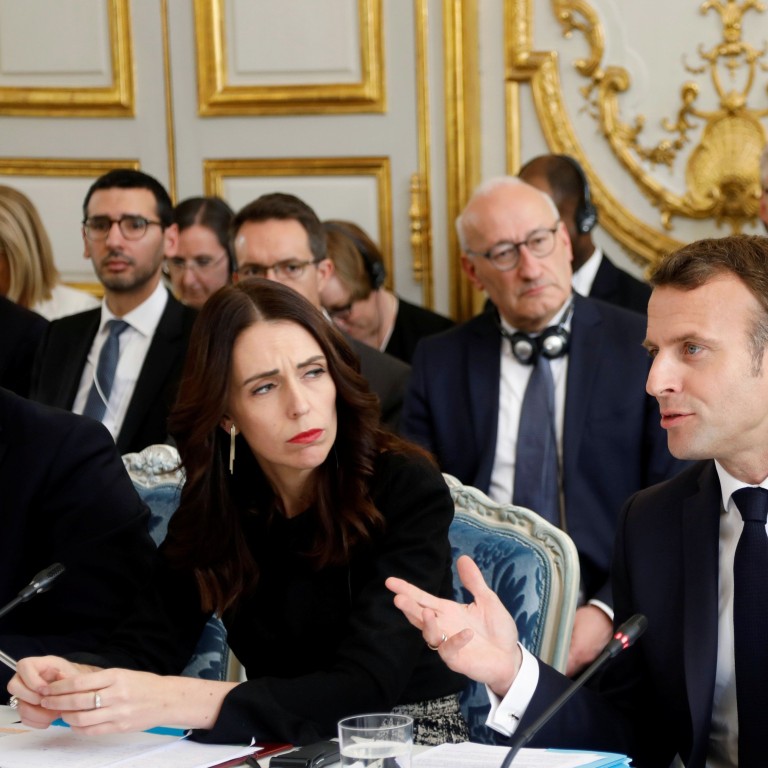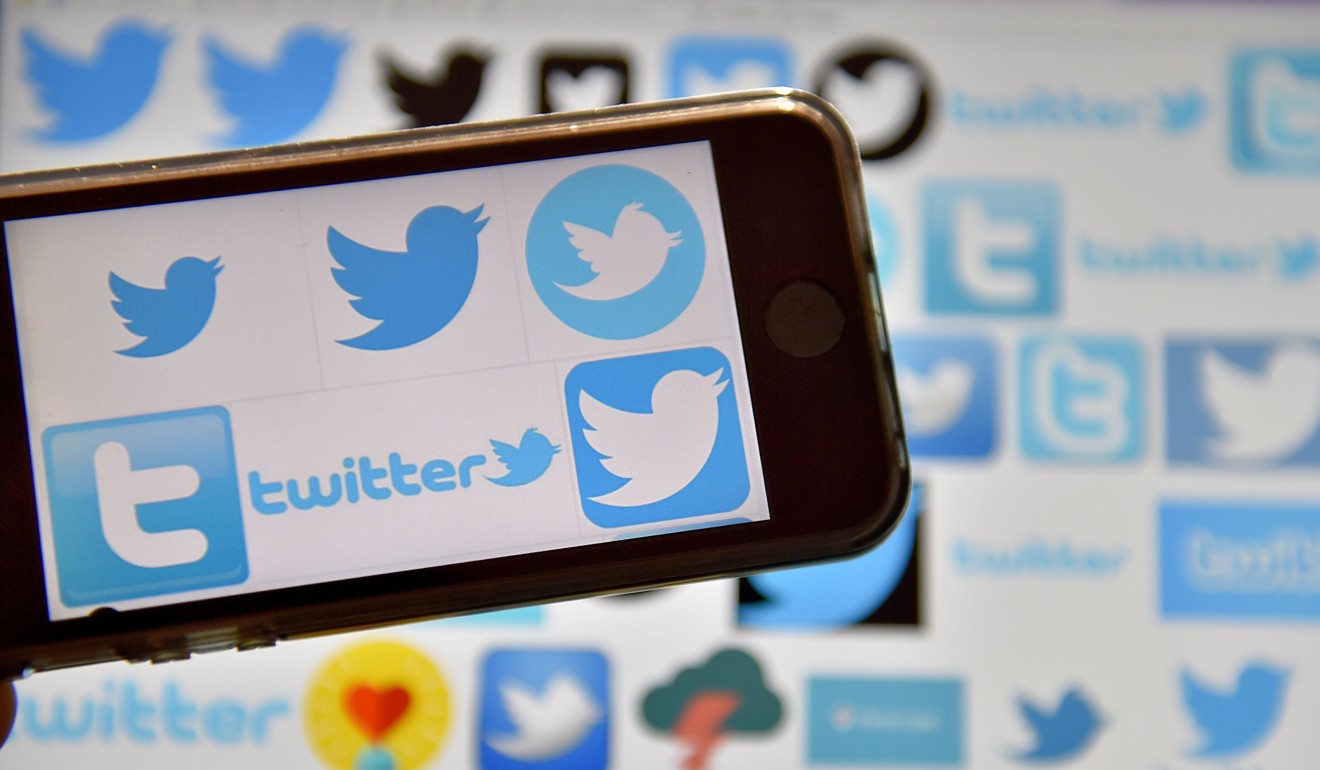
Western governments pass tipping point on online censorship
- Australia passed sweeping legislation to punish social media companies that fail to remove violent material from their platforms in a timely manner
- Earlier this month Facebook bowed to pressure and banned Infowars host Alex Jones and other right-wing extremists from its platform
The law is coming to the last true frontier.
In the West, the internet has long been a lawless cyberspace where people were allowed to express their opinions freely. For years, social media platforms like Facebook and Twitter have vigorously defended free speech, even when that speech came from a place of hatred.
But that is about to change.
The March mosque massacre in Christchurch, New Zealand, where the shooter live-streamed the killing of 51 victims on Facebook for all the world to see, proved to be the last straw for many Western governments.
Within weeks of the shooting, Australia passed sweeping legislation to punish social media companies that fail to remove violent material from their platforms in a timely manner. New Zealand prime minister Jacinda Ardern, together with French president Emmanuel Macron, are leading the charge to curb the dissemination of online extremism with the Christchurch Call, a plan that brings together governments and tech companies to review how online content is disseminated and to ensure that incidents like the mosque shootings will never be repeated.
“We owe it to those affected by the attacks in Christchurch, and other attacks in cities and towns around the world where terrorism and violent extremism have struck, to undertake this work,” said Ardern in a statement.
In the West, more countries have joined Ardern’s rallying call. On Thursday, Canadian prime minister Justin Trudeau announced at the VivaTech conference in Paris a new digital charter, aimed at combating hate speech and disinformation online. While his announcement was short on details, more will be revealed during an upcoming summit in Ottawa, Trudeau said.
The Christchurch shootings were a “wake-up call”, Trudeau said, adding that social media platforms have become a breeding ground for extremists and hate speech that would not be tolerated in streets and public places has “festered online” and spilled out into the real world.
“The digital sphere has turned into the Wild West,” Trudeau said. “Government and industry leaders haven't made it enough of a real priority. We have to pay attention to what's happening – the character of our countries are on the line.”
Increasingly, people are living their lives in a digital space that is unregulated, leaving them vulnerable, he said.
“We can’t rely exclusively on companies to protect the public interest … [the government must set] guardrails to protect us from the things that could go wrong.”
Britain proposed methods to curb the circulation of harmful online content such as extremism and harassment in a white paper released last month. The government is mulling setting up an independent regulator with the power to enforce social media regulations and penalise technology companies that do not comply. It also wants to work with industry and civil society to set out principles on how to incorporate safety features during the development of their products.
“I’m proud of the work we’ve done in the UK to strike a balance between how we’ll protect people online and how we will protect online freedoms,” Jeremy Wright, the British Secretary of State for Digital, Culture, Media and Sport, said on Thursday at the VivaTech event in Paris.
The moves from Western governments for a more active role in policing social media after long championing the idea of free speech and freedom of expression comes after it became evident that tech companies have failed at moderating content on their own platforms.
Jack Dorsey, who helms Twitter, had also been reluctant to condemn white supremacist content on the platform. Instead, he said users were not reporting neo-Nazi content enough for Twitter to enforce it.
Facebook chief executive Mark Zuckerberg last year said that even deeply offensive posts such as Holocaust denial or conspiracy theory sites like Infowars would not be censored because users who post these are not “intentionally getting it wrong”, although earlier this month Facebook bowed to pressure and banned Infowars host Alex Jones and other right-wing extremists from its platform.
While social media platforms have been used to deliberately spread disinformation, in some cases this has even led to genocide. Last year, the UN concluded that the Myanmar military had used Facebook as a tool to incite hatred against the Rohingyas and enable ethnic cleansing. Cases of disinformation include Russian interference in the 2016 US presidential election and the Brexit vote debate the same year, with foreign agents purchasing Facebook ads to target and influence certain segments of the US and UK populations.

Platforms like Facebook and Twitter are set up to allow for targeted dissemination of information, regardless of whether it is legitimate or not, because ads can be sent to a targeted audience based on demographics such as age, gender, location and interests.
A Bloomberg report also recently found that YouTube’s top executives, focused on increasing the amount of time users spent watching its videos, allowed its algorithm to recommend content bordering on hate speech or that pushed conspiracy theories, as these videos tended to attract large numbers of views. Since then, the platform has started rolling out features to correct the issue.
“The platform has incredible reach ... globally we have 2 billion people,” Cecile Frot-Coutaz, head of YouTube in Europe, Middle East and Africa, said at VivaTech on Thursday. “And we have cultural impact, and with that comes responsibility ... in making sure we keep our users safe.”
YouTube has moved to recommend authoritative sources of information when users search for hotly-debated topics like Brexit, and is in the process of rolling out fact-checking and knowledge box features so that users “have a way to make up their mind”. YouTube will also let users know if they are watching a channel that has been funded by the government, she said.
Critics of social media regulation argue that sweeping and vaguely-defined proposals to regulate platforms could result in the removal of a perfectly legal swathe of free speech as companies over-censor to err on the side of caution. In the worst case scenario, they say social media regulation could pave the way for totalitarian governments that control the flow of information.
The West’s move to curb harmful content and regulate social media platforms is seen by some as a step in the direction of what China has been doing for years – a “Great Firewall” that blocks foreign social media platforms and censors content deemed politically sensitive or disruptive to public order.
But some, like former US Secretary of State John Kerry, say that restricting certain content on social media does not amount to censorship, rather is “common sense”.
“I think platforms or people who are deciding to engage on that platform, that the platform has a right to have rules,” Kerry said at VivaTech. “We’ve got to be practical and smart about this, or we’re going to poison something that has enormous power for good,” he said.
“We now are learning that there are places where we have to place some restraints … companies need to make their rules and hold people accountable to them and it is inexcusable that some things remain on the internet as long as they do.”

